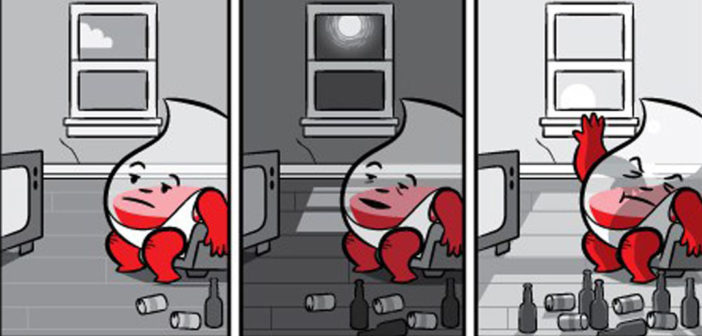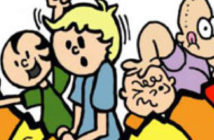Throughout 2010, I repeatedly saw commercials on television featuring smiling and plucky Wal-Mart employees showering endlessly insipid compliments on their benevolent employer. A strange tactic, I thought to myself. Ever since the detrimental recession that began in 2008, I assumed Wal-Mart was going to market itself by singing the praises of its everyday low prices and not worry so much about its impoverished human image.
But it’s a reputation the company cannot escape, no matter how cheap a jar of mayonnaise is, I suppose, and therefore it must be addressed. Don’t forget that in early December 2010, the United States Supreme Court decided it would hear the infamous class-action lawsuit, Dukes v. Wal-Mart Stores, Inc., concerning sex discrimination within the company’s promotional system. It’s an open wound that’s been festering for years, refusing to stop bleeding all over the company’s reputation.
This, among other morose character issues, has led to Wal-Mart changing its image a time or two. Don’t forget that Sam Walton’s retail empire once employed a bouncing, whistling, yellow-faced price chopper as a mascot. But in recent years, he became associated with the old Wal-Mart, the bad Wal-Mart. He had to go. No hard feelings, but it just wasn’t working out anymore. After all, American employers rarely ever need a reason to fire someone other than not “being a good fit.”
Well, pull up a barstool, my price-chopping friend, and join Kool Aid for a drink. What will it be, beer? No, you need something harder after all those years of loyal service. Perhaps a shot or two of whiskey—surely that will hit the spot. God knows you deserve it, just like the Kool Aid man, an unforgettable staple of Americana. His popularity could run miles around those stupid Budweiser frogs or the Coca-Cola polar bears any day of the week. But these are hard times, and companies are always looking for a way to cut back and save a few pennies.
Cartoonist Tim Piotrowski knows this, and here we have the premise of his fantastic independent comic book, Kool Aid Gets Fired. The story opens with Kool Aid being called into his boss’s office. All of his years of service are valued, of course, but he’s no longer needed. It’s time for Kraft to say thank you and so long. Piotrowski is cunning here: he doesn’t treat Kool Aid as an ill-shaped human being, but rather acknowledges that he’s a mascot born of a living idea, and as such, Kraft owns him outright. He is forbidden from ever pushing his namesake’s product again and is banished into the real world.
Kool Aid doesn’t just roll over, and why should he? He tries to embrace his firing as a new beginning, and strikes out to become a serious actor. But after a multitude of failed auditions, (despite Kool’s impassioned “Stella!” for his A Streetcar Named Desire tryout—hell, even Marlon Brando would have been moved to applaud) the pouting pitcher tells everyone to screw off.
If he won’t be hired for someone else’s play, then he will simply have to start his own. And what better for a blood-red character than Sweeney Todd? He enlists the help of other laid-off corporate mascots, among them Mr. Peanut, Mrs. Butterworth, and Charlie the Tuna. Too bad the play is a flop. Kool Aid is both enraged and crushed, goes on a bender, bangs Mrs. Butterworth, indulges in gambling and blow, and kills a diabetic prostitute—how that happens I will leave to your imagination.
Kool Aid’s spiraling life culminates with him crashing his car into a tree. No, he doesn’t die, but the bigwigs over at Kraft are tired of all of the inadvertent bad publicity, so they take the shattered pitcher of a mascot to court and sue him for his identity, during which it’s decided that he’s Kool-Aid no more. Instead, meet Karl Anderson.
Bankrupted by legal bills, Kool Aid has little to do but find himself an office job, which doesn’t work out despite his best efforts. What’s someone like Kool Aid to do when the perfect job, quite literally a job he was made for, is denied him? I’m willing to say that any one of us would react to such a situation in the same way. Where did Piotrowski draw his inspiration from? I don’t know, but I wouldn’t be surprised if he’s been “let go” from a job once or twice, and he channeled all of that frustration and rage into this poignant work of art.
Kool Aid Gets Fired has the look of a children’s comic, though it’s anything but. This book is an adult allegory for everyone struggling to make something of themselves in the harsh working world. And isn’t that the trouble with all corporate mascots, anyway? Every one of them is friendly and milquetoast on the surface, but who knows what kind of cutthroat machinations went into their creation. For anyone who’s been fired or has had to endure the tedious nine-to-five grind that too many jobs torture their workers with, do not deny yourself this little gem of a comic book. Kool Aid Gets Fired is worth far more than its humble cover price.
This comic book review originally appeared on Broken Frontier.




